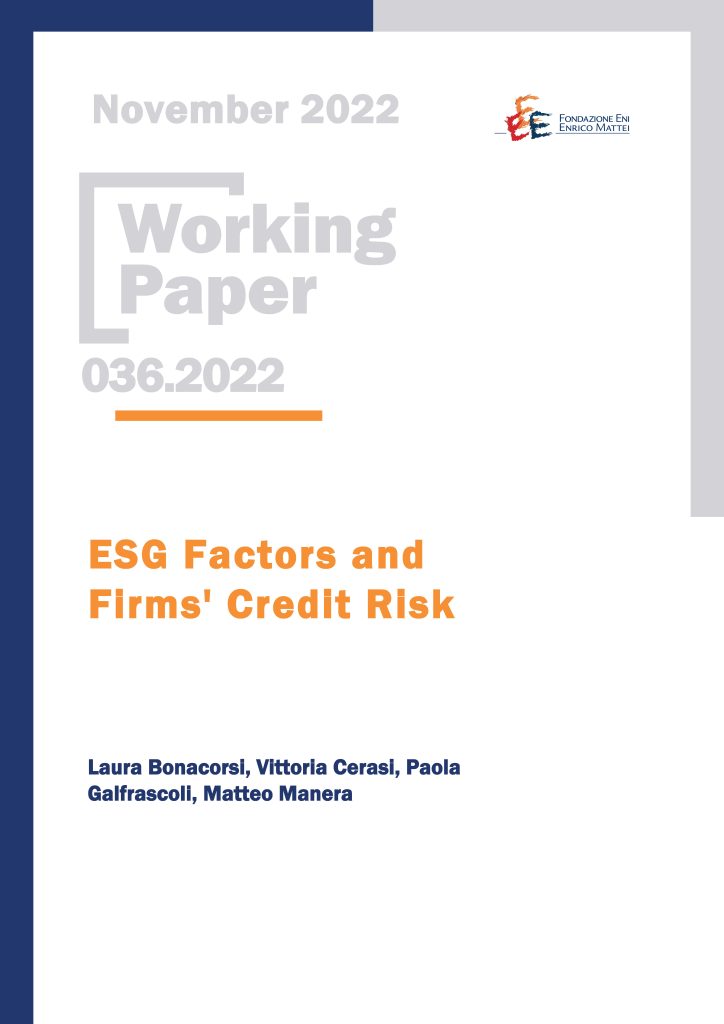ESG Factors and Firms’ Credit Risk

29.11.2022
Laura Bonacorsi (Department of Social and Political Sciences, Bocconi University); Vittoria Cerasi (Italian Court of Auditors and CefES & O-Fire, University of Milano-Bicocca); Paola Galfrascoli (Department of Economics, Management and Statistics and CefES & O-Fire, University of Milano-Bicocca); Matteo Manera (Department of Economics, Management and Statistics, University of Milano-Bicocca and Fondazione Eni Enrico Mattei)
C5, D4, G3
Credit risk, Z-scores, ESG factors, Machine learning
We study the relationship between the risk of default and Environmental, Social and Governance (ESG) factors using Supervised Machine Learning (SML) techniques on a cross-section of European listed companies. Our proxy for credit risk is the z-score originally proposed by Altman (1968). We consider an extensive number of ESG raw factors sourced from the rating provider MSCI as potential explanatory variables. In a first stage we show, using different SML methods such as LASSO and Random Forest, that a selection of ESG factors, in addition to the usual accounting ratios, helps explaining a firm’s probability of default. In a second stage, we measure the impact of the selected variables on the risk of default. Our approach provides a novel perspective to understand which environmental, social responsibility and governance characteristics may reinforce the credit score of individual companies.
***
Suggested citation: L. Bonacorsi, V. Cerasi, P. Galfrascoli, M. Manera, ‘ESG Factors and Firms’ Credit Risk’, Nota di Lavoro, 036.2022, Milano, Italy: Fondazione Eni Enrico Mattei
